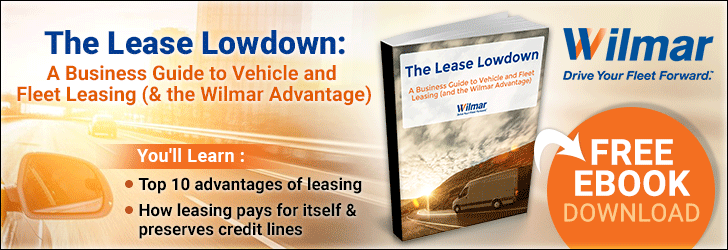
Leasing a truck has several advantages for your business. First, you eliminate ownership costs and free up capital for other business operations.
You also have an easier time updating your fleet without incurring hefty initial costs. However, leasing a truck for your business boils down to one question, "How much does it cost to lease a truck?"
While leasing has lower upfront costs than owning a vehicle, it has cost nonetheless. Knowing each of the costs will help you plan adequately.
Costs Associated with Leasing a Truck
Car Model and Cost
The first step to answering "how much does it cost to lease a truck?" lies in the value of the car. If you choose to lease the latest and newest trucks, then your lease will cost more than if you chose used vehicles. If you want to lower the cost of your lease, you need to find older car models that are cheaper in value.
The Residual Value
The residual value is the anticipated value of the car at the end of your lease. The leasing company will consider factors such as the market conditions, the car's reliability, gas price changes, new technologies among others to find the residual value.
Usually, leasing covers the cost of depreciation. Therefore, the leasing company factors the depreciation of the car into your monthly payments. The higher the residual value of the truck, the lower your monthly payments.
Car Lease fees
When you lease a truck, consider the charges associated with the lease. Some costs are payable upfront while others are payable at the end of the term of your lease.
Security Deposit
Some lessors require you to pay a security deposit upfront to secure them against default or of you do not return the vehicle according to the agreed requirements. Usually, the deposit may be equal to your monthly payments or slightly more than the monthly payments.
If you play within the rules, your security deposit is refundable. However, cosmetic damage, mechanical damage and exceeding your mileage limits can affect the refund.
Acquisition Fees
An acquisition charge helps a leasing company offset the costs of processing your lease agreement. The company will pull your credit reports and also determine your insurance coverage.
You can negotiate this fee to lower the cost of your lease.
Title, Registration and Taxes
The law requires that you obtain a title and register each vehicle with the DMV. Some lessors will add a title and registration fee to your lease agreement.
Depending on where you live, you may also incur taxes when signing the lease. However, it is also possible to roll in the taxes into your monthly payments.
Gap Insurance
Many lessors include GAP insurance in the cost of leasing. GAP insurance covers the balance between what you owe for the lease agreement and what your insurance coverage will provide in the event of car theft or a car crash.
Excessive Mileage
Most leases have a restriction on the maximum mileage. The total allowed mileage can be anywhere between 13,000 and 15,000, but it can vary depending on your contract.
When you exceed the mileage, you will pay an additional fee for every mile you exceeded.
Early Termination Fees
If you end your lease agreement early, your lessor may charge you.
Routine Maintenance and Repairs
There are leases where you are responsible for regular maintenance and repairs on the truck. Maintenance costs can be hefty, and you should capture them in the total cost of leasing.
Choosing A Truck for Leasing
When entering a lease agreement, it is essential to ask, how much does it cost to lease a truck? As you ask this question, ensure that your lessor includes all the charges that affect the total cost of your lease.
For more information of leasing a truck for your business, contact Wilmar today.








